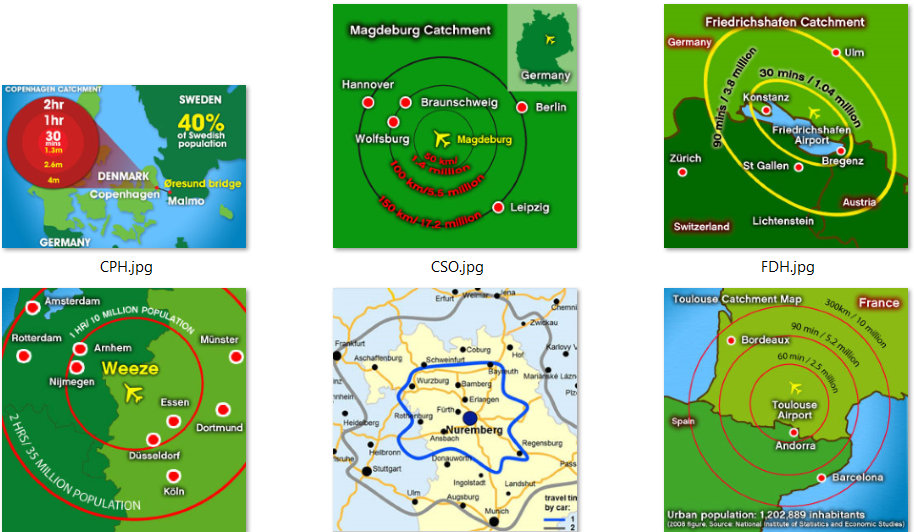
Another post in the Cognitive Dissonance series.
Aviation banks say new deals on pause until ‘market bottoms out’ (ISHKA)
The market will be flooded with surplus of 150-seat up aircraft. (ISHKA webinar)
Aside those headlines, two ideas shortly (too short?) addressed in the ISHKA-webinar triggered my thinking:
Is P2F (passenger-to-freight-conversion) a strategy for aircraft owners? And is part-out, cannibalizing aircraft for spare parts, an option?
P2F – Passenger to Freighter Aircraft Conversion
 Bill Cumberlidge addressed P2F shortly in the ISHKA webinar. As the need for quick transport increases, the belly-freight in passenger aircraft has gone missing. That increases the demand for classic freighter aircraft. But keep in mind that this is a temporary peak only.
Bill Cumberlidge addressed P2F shortly in the ISHKA webinar. As the need for quick transport increases, the belly-freight in passenger aircraft has gone missing. That increases the demand for classic freighter aircraft. But keep in mind that this is a temporary peak only.
But given passenger airlines taking up that surplus transporting goods in their passenger aircraft, the question now is not if we need more freighter aircraft, but the aircraft owners sitting on “dead capital”, seeking their own bailout – by considering to convert them to freighters seems a good idea. Or does it not?
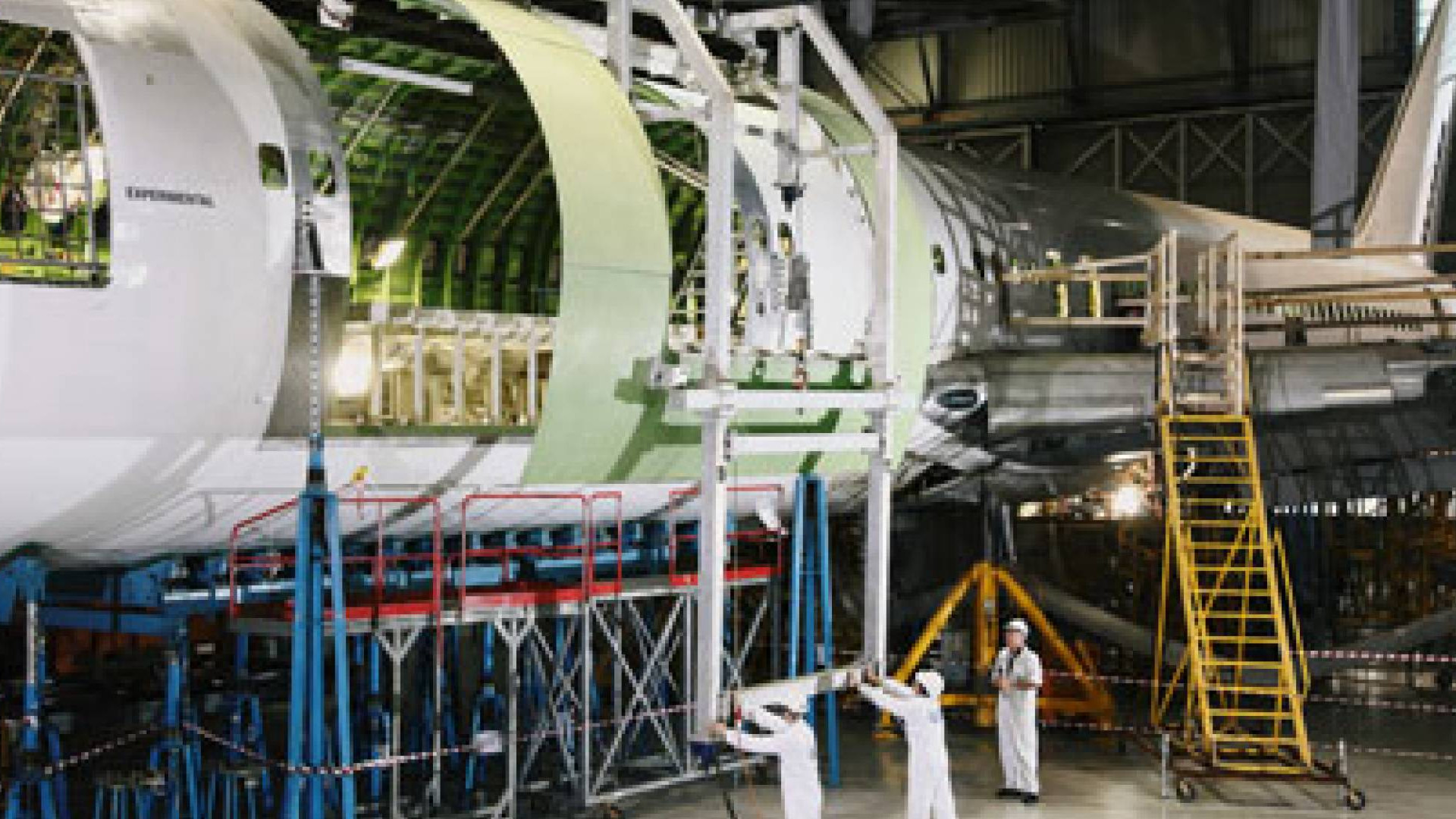 The main issue there seems not to be the demand for conversions exceeding the available resources, companies with the experience in such conversions.
The main issue there seems not to be the demand for conversions exceeding the available resources, companies with the experience in such conversions.
Then you cannot simply convert all the grounded aircraft to freighters, without flooding the market. Offer and demand will simply result in surplus freight capacity, ruining the prices both for freighter aircraft as well as for airfreight cost. So the idea will quickly backfire. What I heard first from truck drivers, seems now to become an issue in the airfreight industry. Passenger airlines, offering cheap passenger aircraft for ad hoc transport ruining the prices.
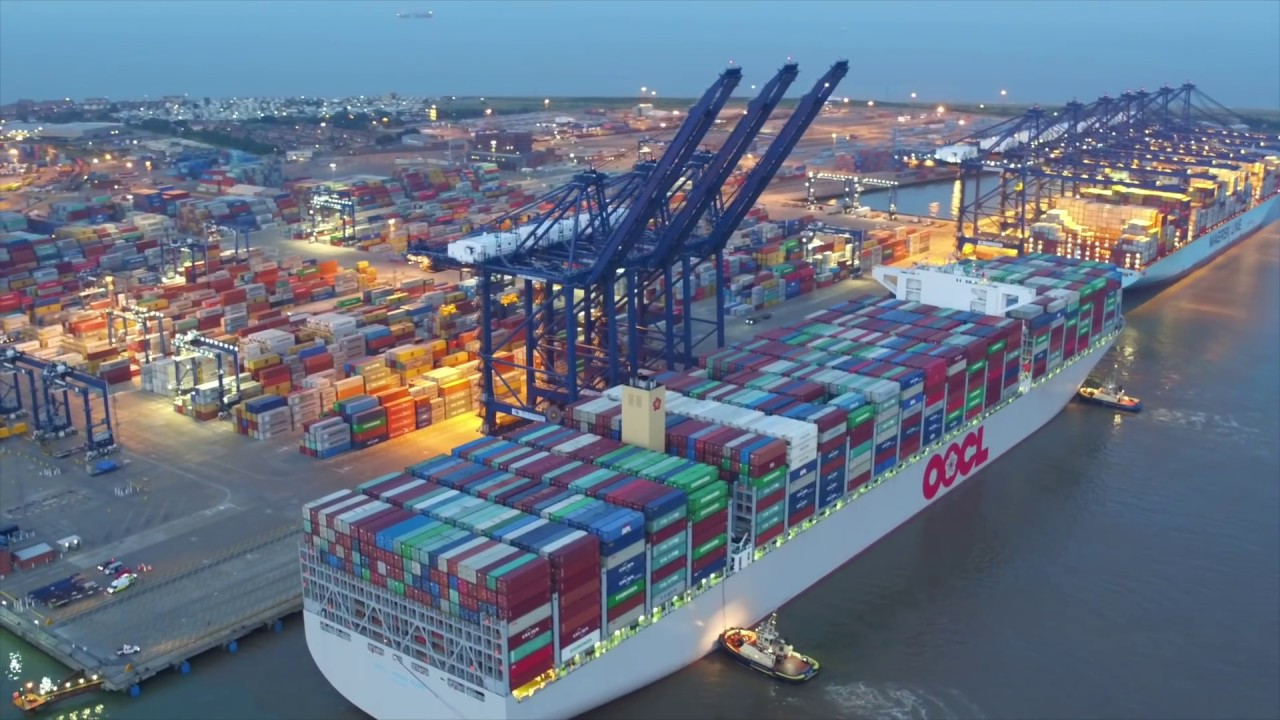 While there is a current peak, promising a use of lots of large freight aircraft (A380, B747, B777, B767, A330, A300, etc., etc.) that demand bubble will last maximum one year.
While there is a current peak, promising a use of lots of large freight aircraft (A380, B747, B777, B767, A330, A300, etc., etc.) that demand bubble will last maximum one year.
Seabased shipping will still do the majority of transport. And while shipping cost will likely peak, ship-operators (I avoid the word shipping company) will possibly recover their eroding revenues in the crisis. If they don’t make their own mistakes.
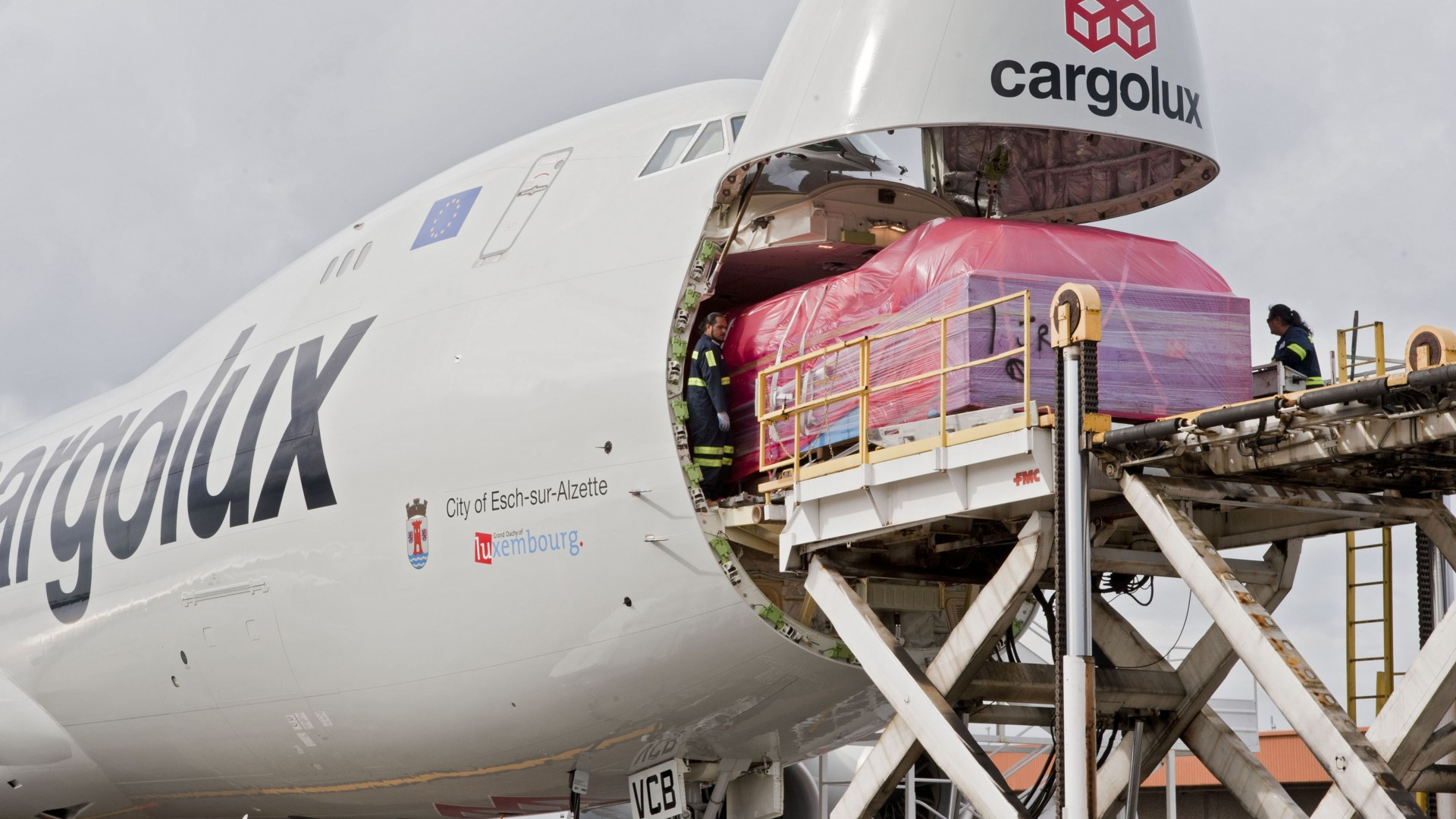 But how many containers does a single container giant today transport? And how many of those can you put onboard an A380 or B747? There were a lot of hurray and self-praise of airlines that one aircraft transported 500,000 masks to somewhere. Whereas the population there is a multiple of that number. Airfreight is expensive and a drop on a hot stone.
But how many containers does a single container giant today transport? And how many of those can you put onboard an A380 or B747? There were a lot of hurray and self-praise of airlines that one aircraft transported 500,000 masks to somewhere. Whereas the population there is a multiple of that number. Airfreight is expensive and a drop on a hot stone.
And the rush now to the common idea everyone follows will backfire and hit us in the back soon.
Parts-Out – Cannibalizing Aircraft
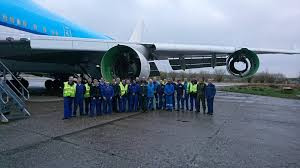 Another, very standard “fallback idea” is the “End-of-Life”-strategy to cannibalize the surplus aircraft for spare parts. Given the immense surplus of 150-240-seat aircraft, this bubble is instantly doomed. In several expert discussions I heard 50%, even up to 70% of the fleets to be grounded. Recovery of likely 80% within two years. Let’s say we decommission 20%. Which ones? Where? Who starts?
Another, very standard “fallback idea” is the “End-of-Life”-strategy to cannibalize the surplus aircraft for spare parts. Given the immense surplus of 150-240-seat aircraft, this bubble is instantly doomed. In several expert discussions I heard 50%, even up to 70% of the fleets to be grounded. Recovery of likely 80% within two years. Let’s say we decommission 20%. Which ones? Where? Who starts?
Bill voiced a valid concern too. What if airlines neglect the engine maintenance, but use the engines of the grounded aircraft? Sure, once traffic picks up you can lease new engines. Which might be even cheaper than servicing the neglected engines. But. If all airlines follow that strategy, I predict a shortage in new engines to hit us in the back. And we will have hundreds of aircraft engines to be written off.
 Cognitive Dissonance: Who Pays the Bill
Cognitive Dissonance: Who Pays the Bill
All those ideas try to secure the profits, moving the losses to others. Whereas we so much promote that we are all in this together, in reality it is very much egoism at play. Back to the good old Saint-Florian’s Principle: Oh holy dear Saint Florian, don’t burn my house, take the neighbor’s one!
A good example is basically the question about aircraft. Airbus and Boeing reduce their production. Because airlines do not take the aircraft as planned. Realistically, there won’t be much demand of their aircraft in the next two years (or more). But could they sustain two years without revenue? Beyond some spare parts.
Then the airlines return aircraft to the leasing companies or cancel orders, even at the expense of financial penalties. Such piling up the dead capital with them. i.e. Brussels Airlines, representing the mighty Lufthansa Group, cancelling their wet lease deals with CityJet. Leaving them out in the cold. Lufthansa style.
And then there are the investors. Who will loose big money as a result of a surplus of aircraft they had focused on. Without realistic concepts how to make money or turn their dead capital to assets again.
That self-centered thinking will hit us in the back soon.
Supply Chain Management: We are ALL in this Together
My first boss taught me an important lesson in supply chain management ethics. It is not always about the cheapest offer. There is always someone cheaper. But part of good supply chain management (and beyond) is the reliability of partnerships. Especially when times are challenging.
#weareallinthistogether. Exactly that catchphrase so many now use for #whitewashing. Again. It’ll hit us in the back.
Food for Thought
Comments welcome!
P.S.: Things can be handled differently. If you Think Outside the Box. And beyond. We’re looking for airline investor(s) who understand “doing different” being the core to the Unique selling proposition. We have some sound, profit- and USP-, sustainability and social responsibility focused business out for funding. Contact me to learn more.



 But there was another article even more to the point: “
But there was another article even more to the point: “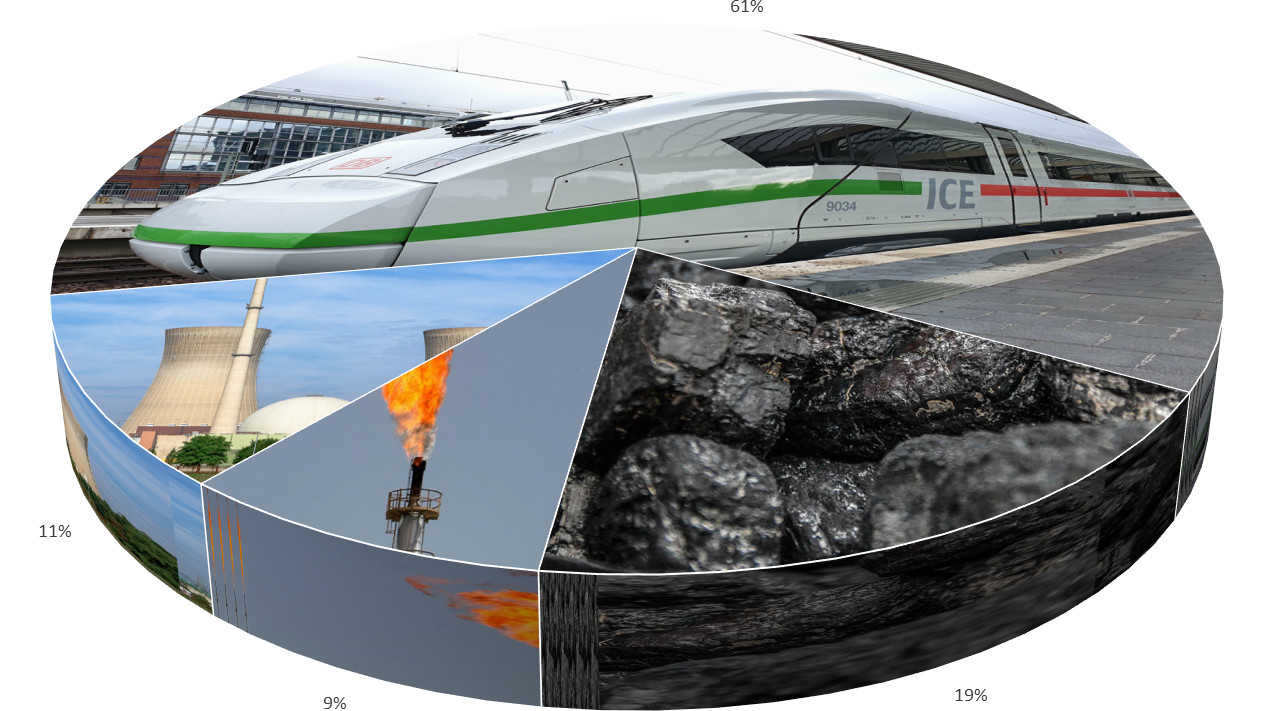
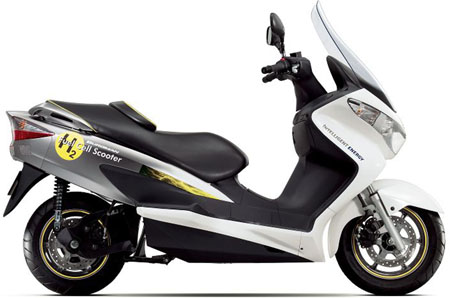 Given the devastating
Given the devastating  There is an important advantage of air travel to both rail and road that is frequently not addressed. The issue of ground sealing!
There is an important advantage of air travel to both rail and road that is frequently not addressed. The issue of ground sealing! A highway with four lanes is about 31 m wide with about 24 m being sealed. A 50 km highway such seals about 1.2 million m², so three times as much as a single airport. Highways are known to be an insurmountable obstacle for wildlife.
A highway with four lanes is about 31 m wide with about 24 m being sealed. A 50 km highway such seals about 1.2 million m², so three times as much as a single airport. Highways are known to be an insurmountable obstacle for wildlife.
 Rail
Rail


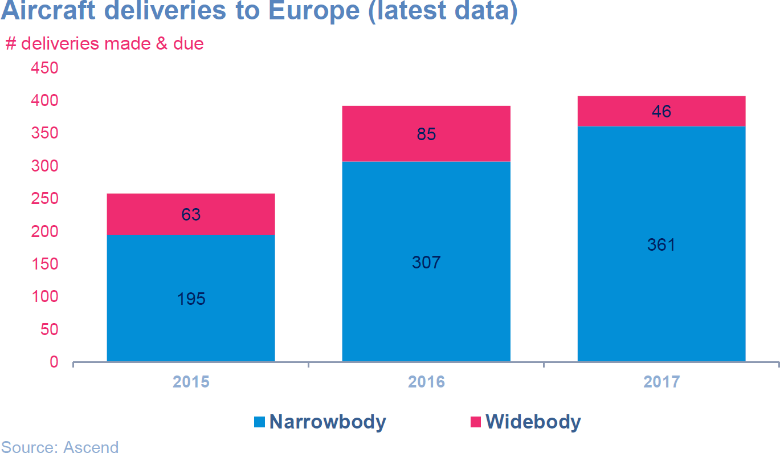 Now all those airlines have operated Airbus A320 and/or Boeing 737. An aircraft in surplus, a saturated market, flooded not only by the aircraft makers but also by lease offers from the low-cost airlines seeking utilization for their own surplus. And while everyone wants aircraft in summer, the eroding revenues do not pay enough for those airlines to survive the winter. I learned so long ago, an ice cream shop needs to create enough revenue to survive the winter.
Now all those airlines have operated Airbus A320 and/or Boeing 737. An aircraft in surplus, a saturated market, flooded not only by the aircraft makers but also by lease offers from the low-cost airlines seeking utilization for their own surplus. And while everyone wants aircraft in summer, the eroding revenues do not pay enough for those airlines to survive the winter. I learned so long ago, an ice cream shop needs to create enough revenue to survive the winter.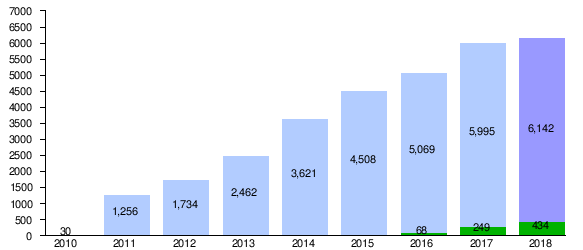
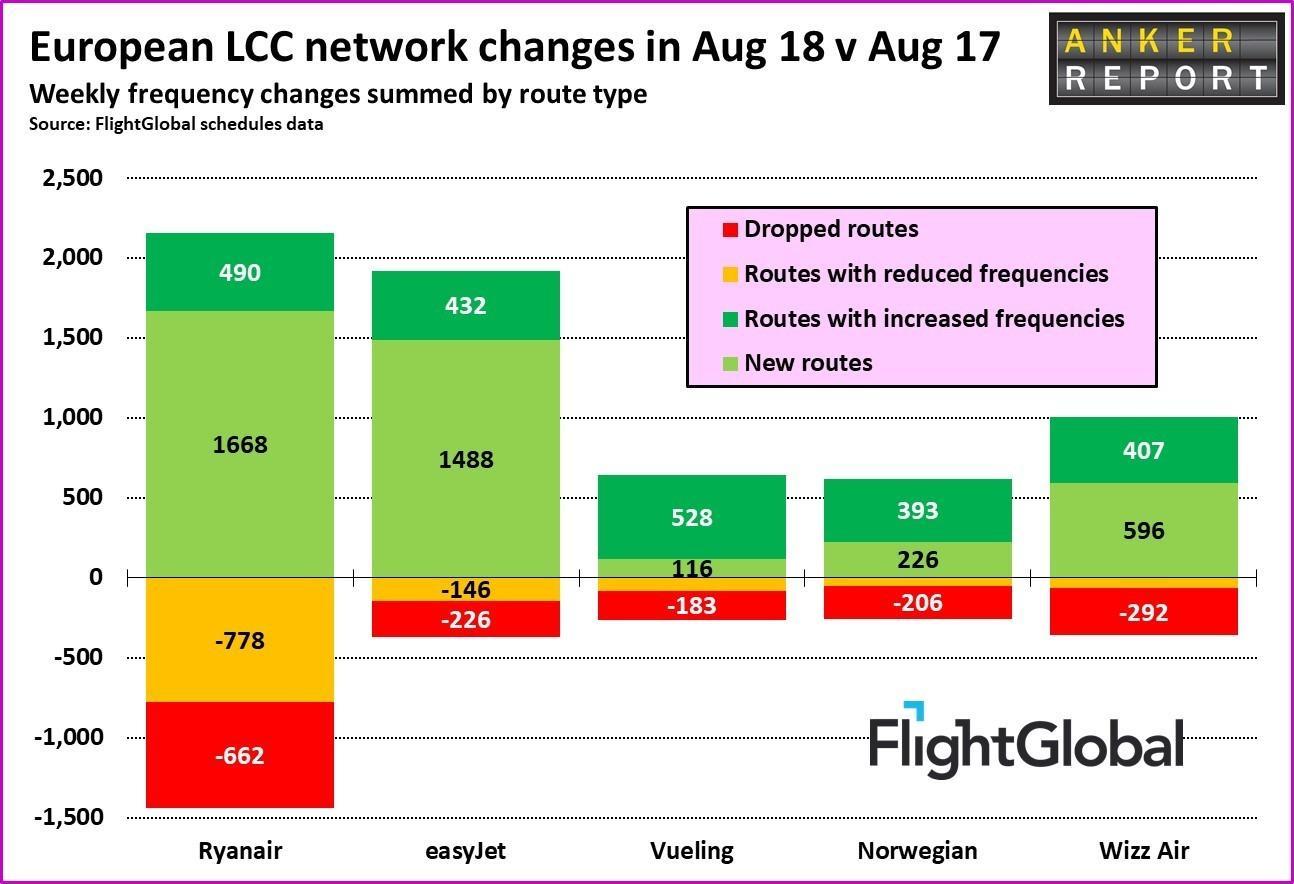 Then we come to the flight crews. While pilots usually are either type-rated on the Airbus A320-family or Boeing 737-family, a mixed Boeing/Airbus-fleet either requires respective crews for each aircraft or the cross type-rating. While pilots usually pay for their flight training, in return, they require high salaries in order to pay off for their – substantial – investment. Even Ryanair now faces the consequences of their “outsourcing” and slave-kind payments of their pilots. While I keep seeing their pilots recruiters immediately jumping on Primera Air but also trying to convince pilots from South America or Asia, if they don’t change their attitude to their pilots, they will keep having problems. Their recent announcement to close the base in Bremen and Eindhoven and reduce the base in Weeze are simply puffing. As Ralph Anker showed in his
Then we come to the flight crews. While pilots usually are either type-rated on the Airbus A320-family or Boeing 737-family, a mixed Boeing/Airbus-fleet either requires respective crews for each aircraft or the cross type-rating. While pilots usually pay for their flight training, in return, they require high salaries in order to pay off for their – substantial – investment. Even Ryanair now faces the consequences of their “outsourcing” and slave-kind payments of their pilots. While I keep seeing their pilots recruiters immediately jumping on Primera Air but also trying to convince pilots from South America or Asia, if they don’t change their attitude to their pilots, they will keep having problems. Their recent announcement to close the base in Bremen and Eindhoven and reduce the base in Weeze are simply puffing. As Ralph Anker showed in his 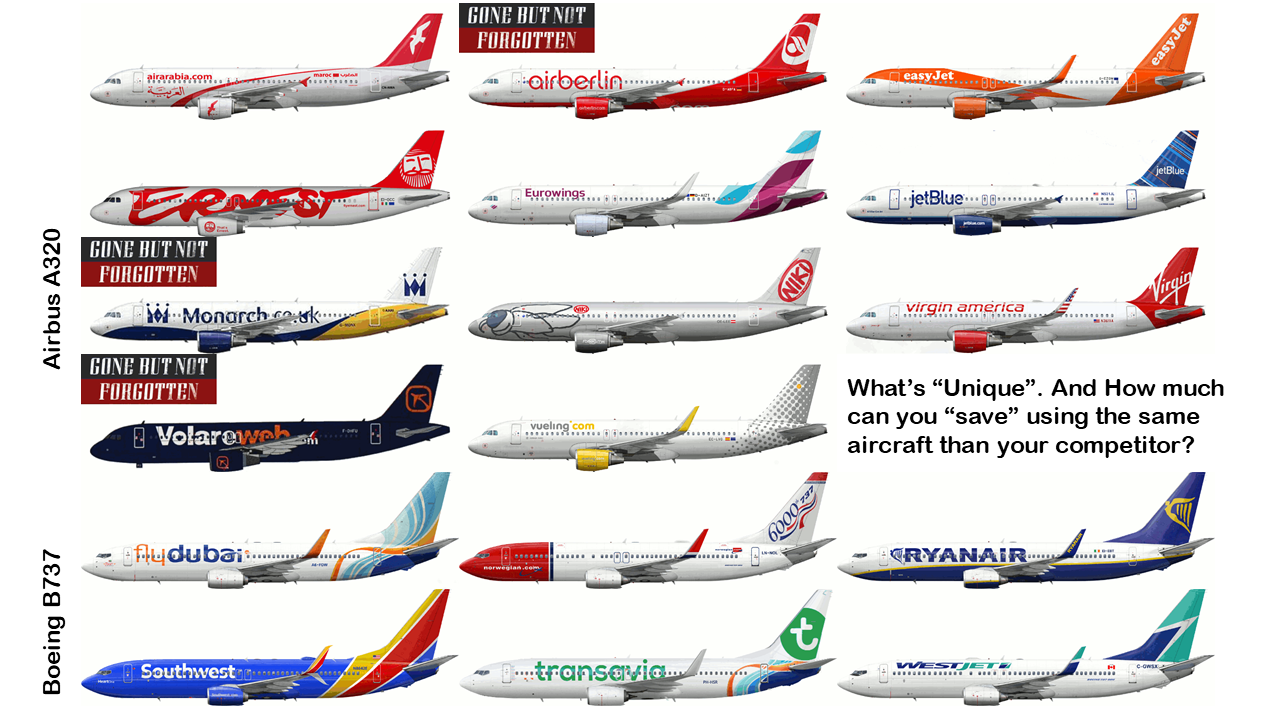
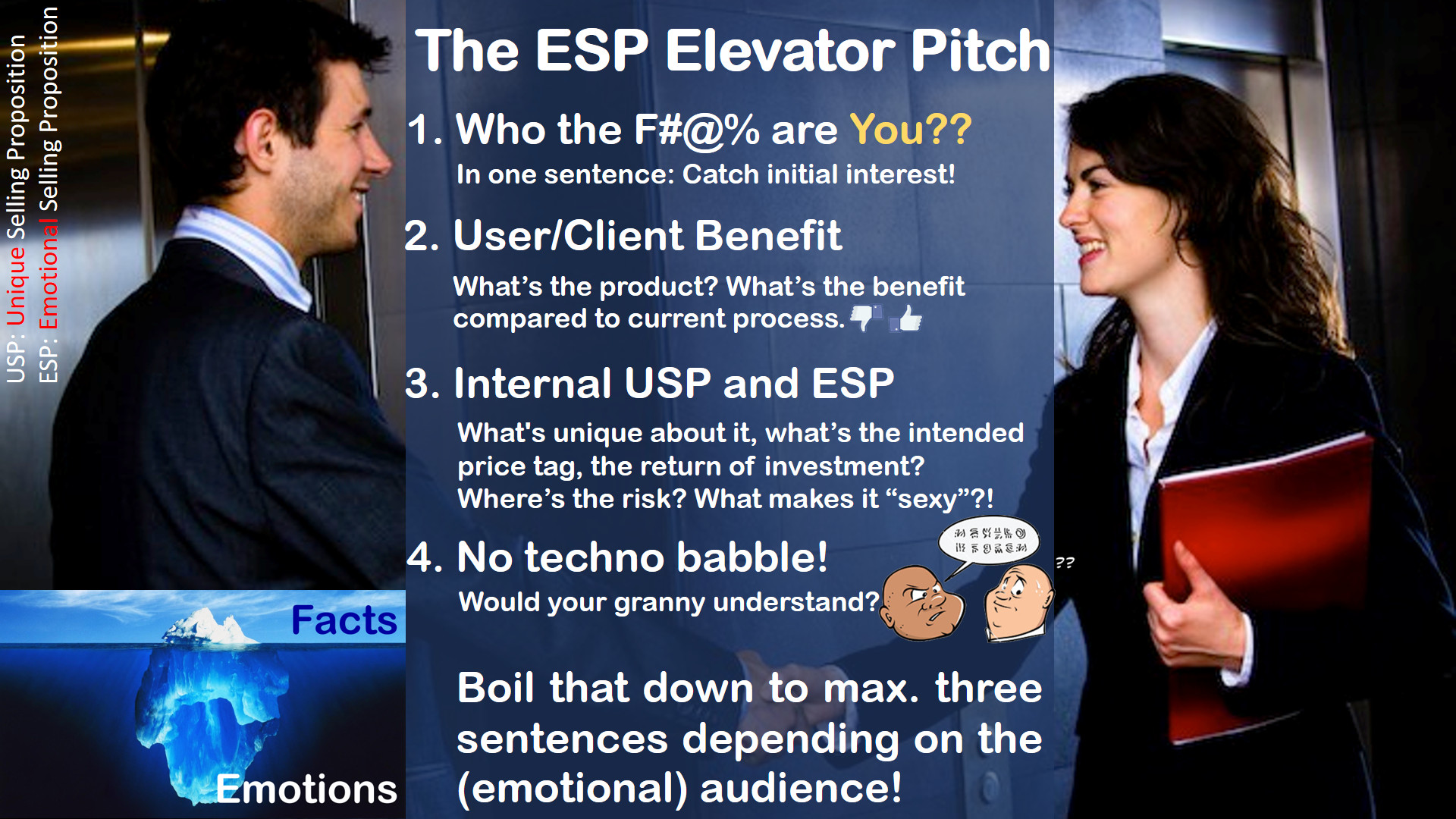
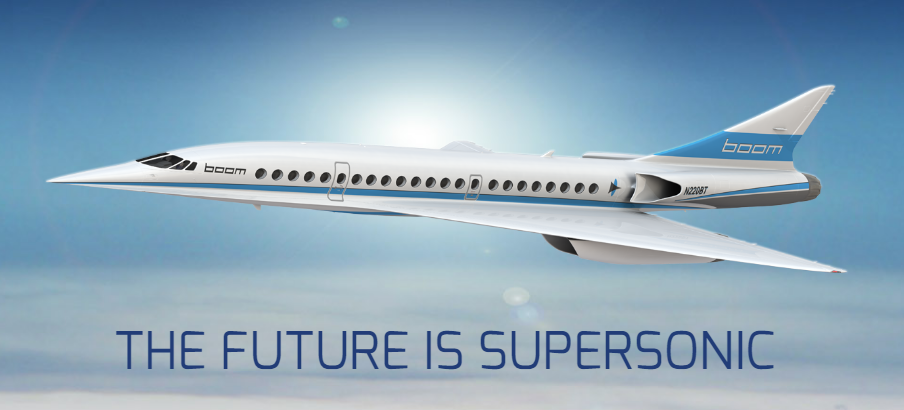 BlueSwanDaily believes in the future of
BlueSwanDaily believes in the future of 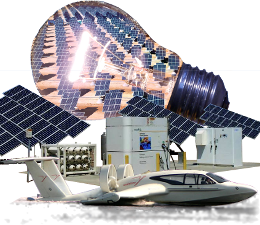 I myself worked out a “green” concept a few years ago, but we’re neither getting there… The project got grounded in the wake of Lehmann Brother’s and a world financial crisis and the original interested investors gone never took up speed again. [Update: The Korean
I myself worked out a “green” concept a few years ago, but we’re neither getting there… The project got grounded in the wake of Lehmann Brother’s and a world financial crisis and the original interested investors gone never took up speed again. [Update: The Korean 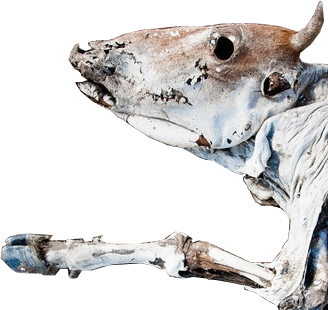
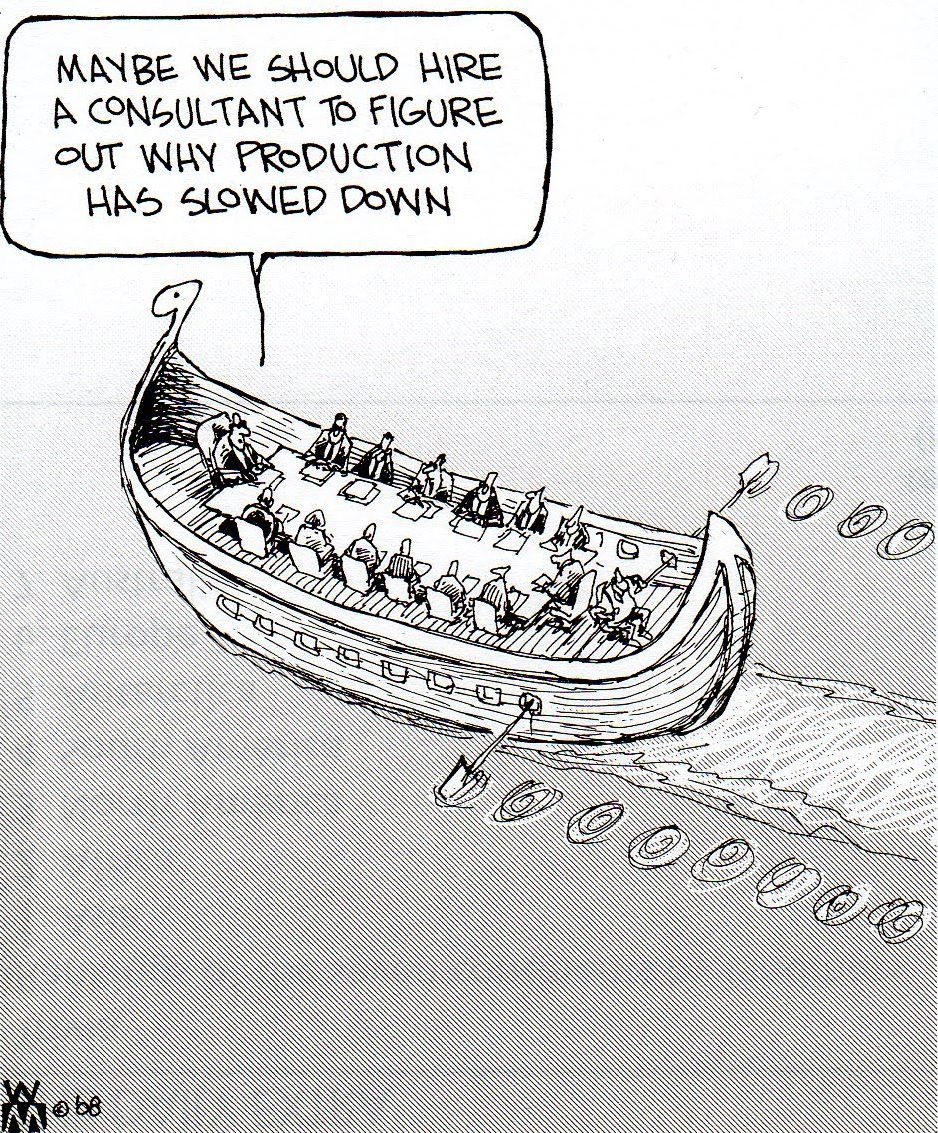
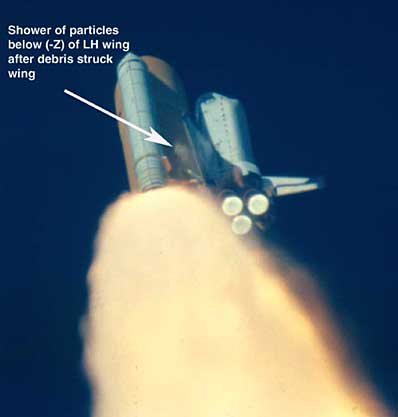 Later I learned the same lesson from space shuttle Challenger, management ignoring their own experts warning them of the temperature being below safety specifications. Shuttle Columbia dying of a piece of foam worth a few cent perforating the heat shield. Of Concorde crashing from a “minor” piece of scrap metal.
Later I learned the same lesson from space shuttle Challenger, management ignoring their own experts warning them of the temperature being below safety specifications. Shuttle Columbia dying of a piece of foam worth a few cent perforating the heat shield. Of Concorde crashing from a “minor” piece of scrap metal.![“Our Heads Are Round so our Thoughts Can Change Direction” [Francis Picabia]](https://foodforthought.barthel.eu/wp-content/uploads/2021/10/Picabia-Francis-Round-Heads.jpg)
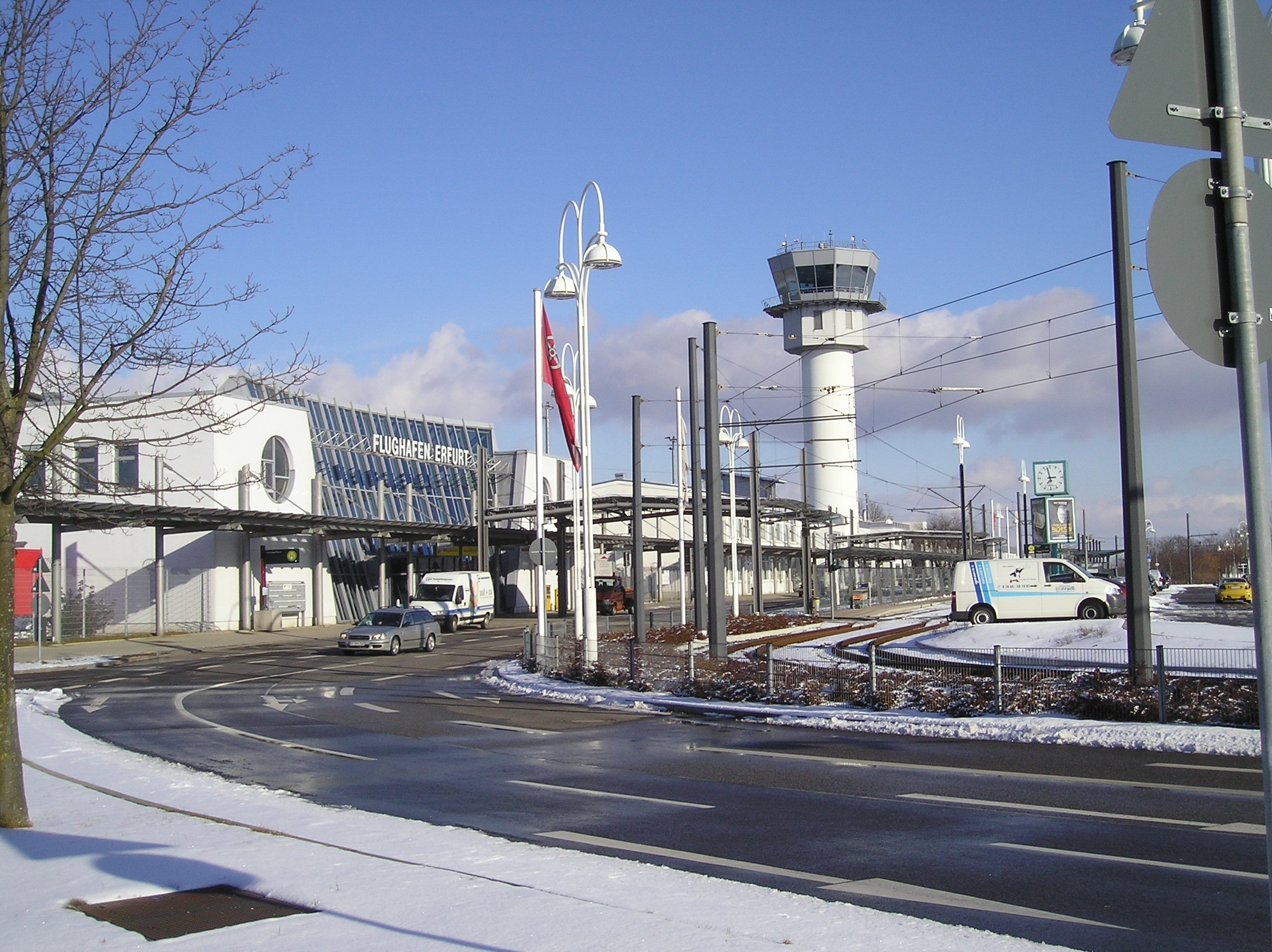 As many of the readers of this blog know, I am somewhat personally attached to that little airport in Central Germany, Erfurt-Weimar.
As many of the readers of this blog know, I am somewhat personally attached to that little airport in Central Germany, Erfurt-Weimar.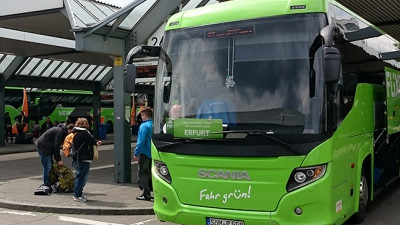 First day at work, the GM of Tourism Thuringia, Bärbel Grönegres was quoted in the local newspaper (TA, 02Mar09), having visited the United Arab Emirates to promote medical tourism to Thuringia. Having a Munich-Erfurt flight by Lufthansa-Partner
First day at work, the GM of Tourism Thuringia, Bärbel Grönegres was quoted in the local newspaper (TA, 02Mar09), having visited the United Arab Emirates to promote medical tourism to Thuringia. Having a Munich-Erfurt flight by Lufthansa-Partner  The next winter, the Thuringian Olympic athletes brought home a record number of medals. But at the following ITB, it was more important to promote
The next winter, the Thuringian Olympic athletes brought home a record number of medals. But at the following ITB, it was more important to promote 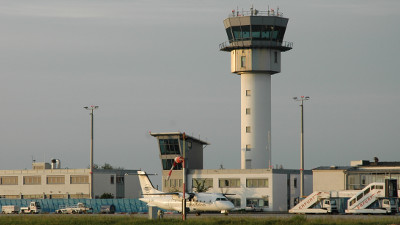 In order to promote the government-funded route, after fierce discussions, Cirrus Airlines agreed to offer a low-cost ticket at 99€ return, having only about 6€ after the high taxes on the ticket. That offer was made available especially to the Thuringian government offices and the state development agency (LEG). Nevertheless, LEG planned and executed delegations traveling with the train to Berlin to take flights from Berlin, instead of promoting the route. The same also for the ministries and ministers. Even the responsible minister taking flights from Frankfurt and Munich instead of using the PSO-route he signed responsible for. During the months we’ve actively promoted that 99€-fare also to the industry and the travel agencies and also had it largely available, not one of the flights used up the 99€ tickets allocated to them. Being at the verge of a bankruptcy, Cirrus Airlines finally ceased to operate that route in December 2010.
In order to promote the government-funded route, after fierce discussions, Cirrus Airlines agreed to offer a low-cost ticket at 99€ return, having only about 6€ after the high taxes on the ticket. That offer was made available especially to the Thuringian government offices and the state development agency (LEG). Nevertheless, LEG planned and executed delegations traveling with the train to Berlin to take flights from Berlin, instead of promoting the route. The same also for the ministries and ministers. Even the responsible minister taking flights from Frankfurt and Munich instead of using the PSO-route he signed responsible for. During the months we’ve actively promoted that 99€-fare also to the industry and the travel agencies and also had it largely available, not one of the flights used up the 99€ tickets allocated to them. Being at the verge of a bankruptcy, Cirrus Airlines finally ceased to operate that route in December 2010.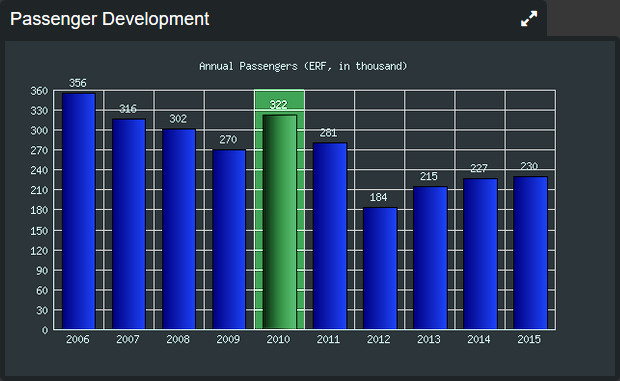 By the time, working with the local industry associations, political parties I have been able to increase the passenger numbers by about 20 percent. In fact, to date, the airport is far from the 320 thousand passengers I left them with. With Weimar being the neighboring but historically better known city internationally, I pushed forward the renaming to Erfurt-Weimar with the attempt to improve the incoming for the airport. Paid almost completely from the limited marketing budget. A strategic decision executed after our parting-of-ways in December 2010 after my two-year contract was not extended in the wake of the retreat of Cirrus Airlines. A strategic decision though made obsolete by the “political” decision by traffic minister Christian Carius to not replace the route as I recommended with an Amsterdam-service. Sad decision indeed, as with our parting ways, the discussions with KLM were simply discontinued (KLM calling my number reached someone speaking German only, I was gone) and despite their interest in a PSO (public service obligation) financial route support, we had discussed flights based on mere startup incentives and marketing support.
By the time, working with the local industry associations, political parties I have been able to increase the passenger numbers by about 20 percent. In fact, to date, the airport is far from the 320 thousand passengers I left them with. With Weimar being the neighboring but historically better known city internationally, I pushed forward the renaming to Erfurt-Weimar with the attempt to improve the incoming for the airport. Paid almost completely from the limited marketing budget. A strategic decision executed after our parting-of-ways in December 2010 after my two-year contract was not extended in the wake of the retreat of Cirrus Airlines. A strategic decision though made obsolete by the “political” decision by traffic minister Christian Carius to not replace the route as I recommended with an Amsterdam-service. Sad decision indeed, as with our parting ways, the discussions with KLM were simply discontinued (KLM calling my number reached someone speaking German only, I was gone) and despite their interest in a PSO (public service obligation) financial route support, we had discussed flights based on mere startup incentives and marketing support.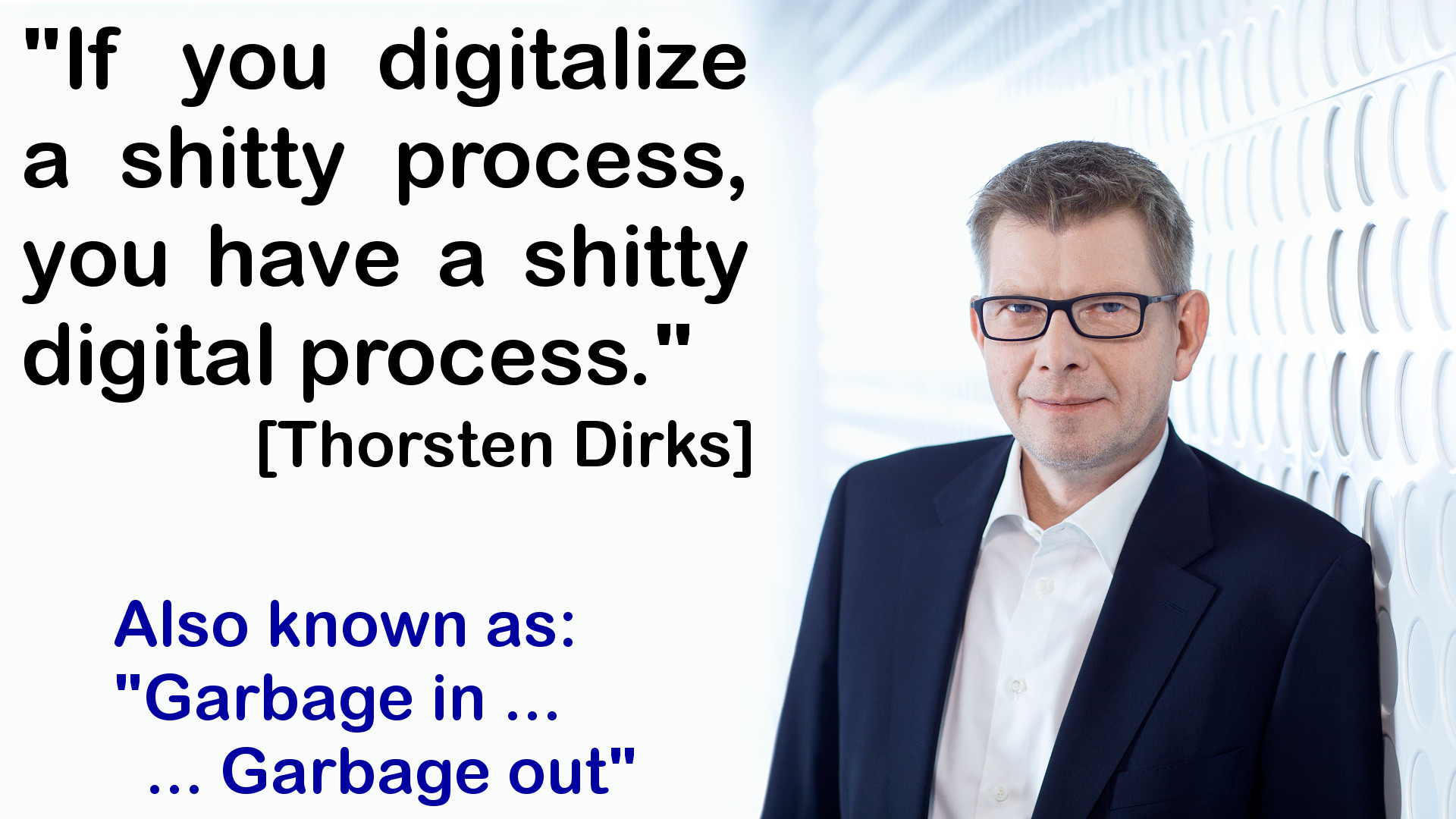 Opposing myself ongoing subsidies, to demand a route but to leave the (substantial) risk completely with the airline is neither the answer. Whereas comparing the
Opposing myself ongoing subsidies, to demand a route but to leave the (substantial) risk completely with the airline is neither the answer. Whereas comparing the 
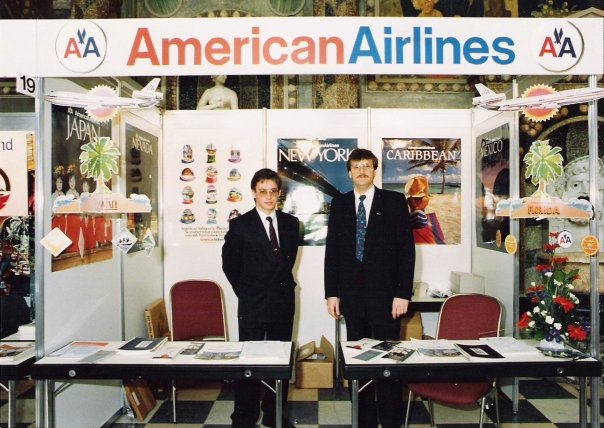 Now since I started in aviation 30 years ago, the market has drastically changed. In the good old days, there were (often highly subsidized) “national airlines”, used to promote the country. Back in my early days, the airlines were the executive for the tourist offices and also worked closely with commercial development agencies. But ever since, those national airlines have either adapted or went out of business. The emerging “low cost” airlines virtually evaporated the income of the airlines, competition becoming fierce.
Now since I started in aviation 30 years ago, the market has drastically changed. In the good old days, there were (often highly subsidized) “national airlines”, used to promote the country. Back in my early days, the airlines were the executive for the tourist offices and also worked closely with commercial development agencies. But ever since, those national airlines have either adapted or went out of business. The emerging “low cost” airlines virtually evaporated the income of the airlines, competition becoming fierce.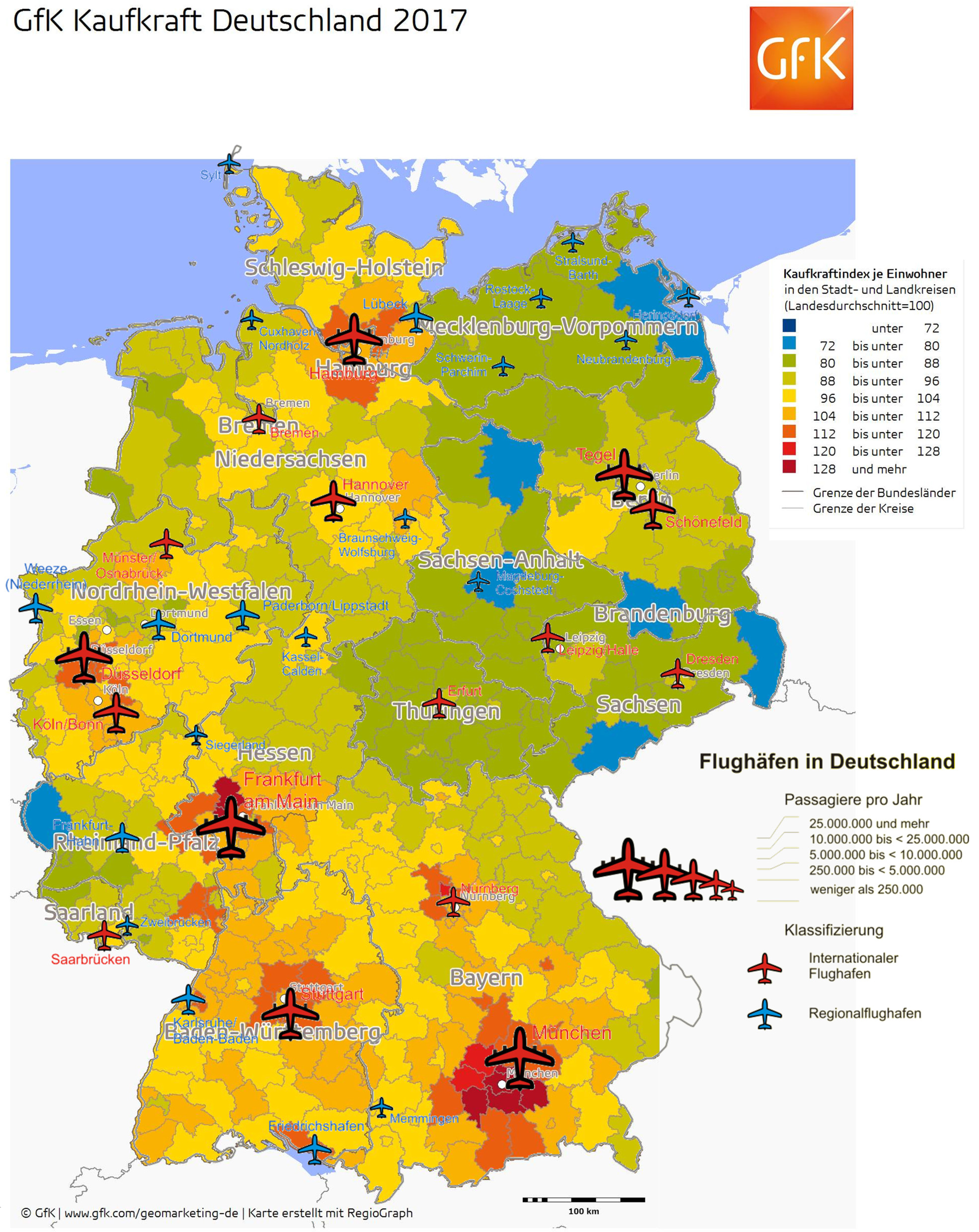 As I keep emphasizing with my updated image of
As I keep emphasizing with my updated image of 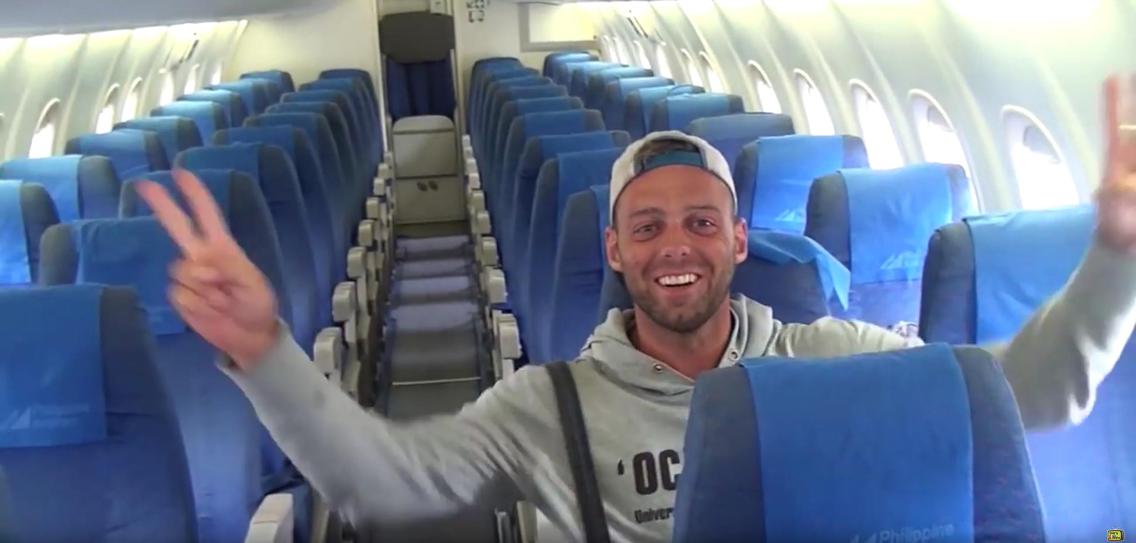

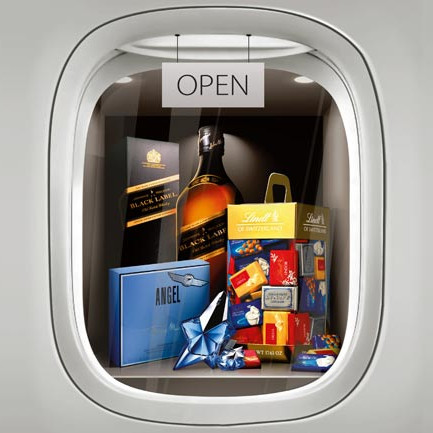
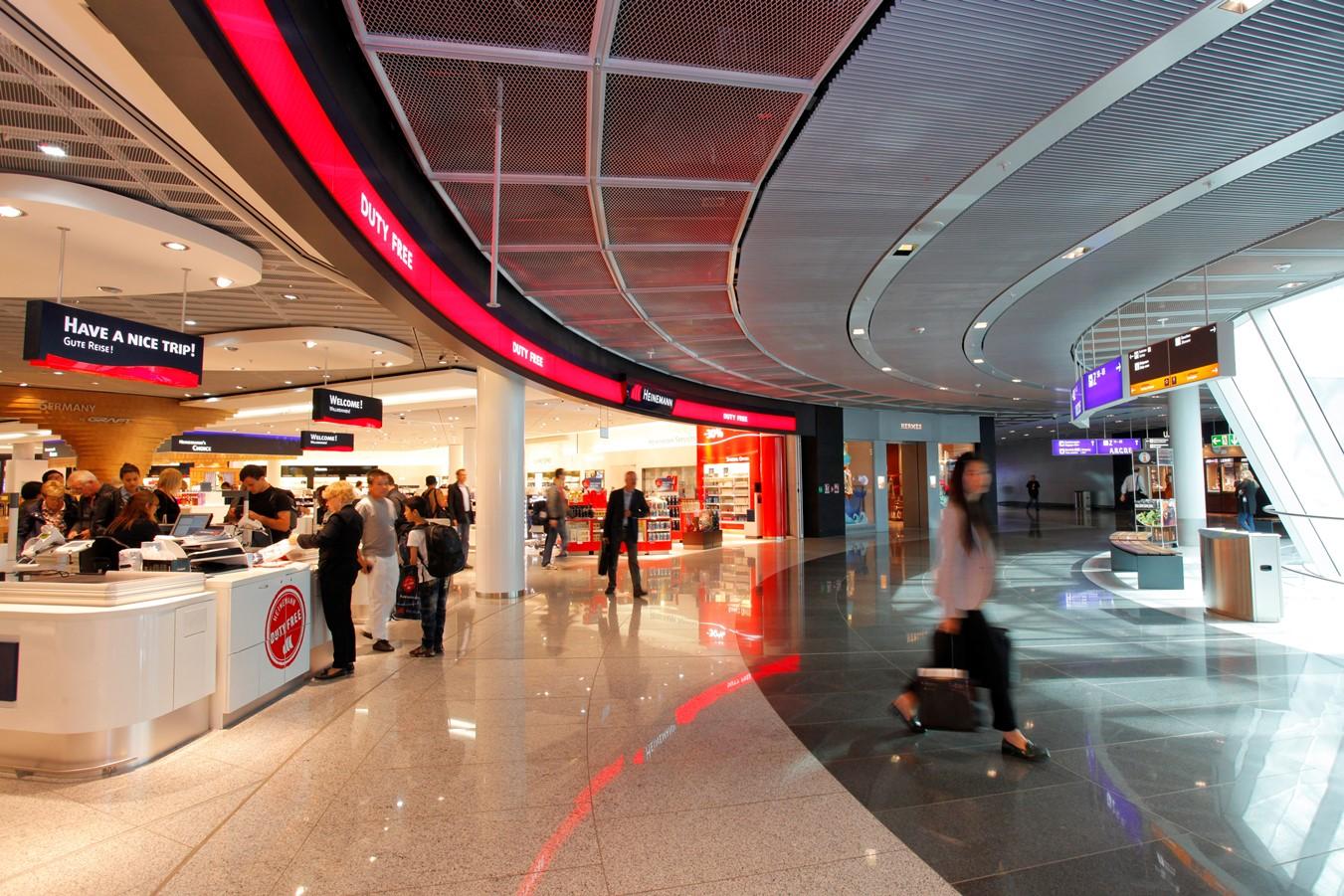
 What we will need is a serious, joint discussion about the future business model in aviation. At the moment there is no discussion. There’s the airlines, the airports and business models that cannot work. And we need to have the politicos and the usually government-controlled ATC (and border control, security, etc.), we have to have the ground handlers, the shops and all other players on the table. You can’t reconstruct all the small airports. We don’t need a fight. We got to work together for a sustainable business model. ERA, AAAE, IATA, ICAO, this is your call.
What we will need is a serious, joint discussion about the future business model in aviation. At the moment there is no discussion. There’s the airlines, the airports and business models that cannot work. And we need to have the politicos and the usually government-controlled ATC (and border control, security, etc.), we have to have the ground handlers, the shops and all other players on the table. You can’t reconstruct all the small airports. We don’t need a fight. We got to work together for a sustainable business model. ERA, AAAE, IATA, ICAO, this is your call.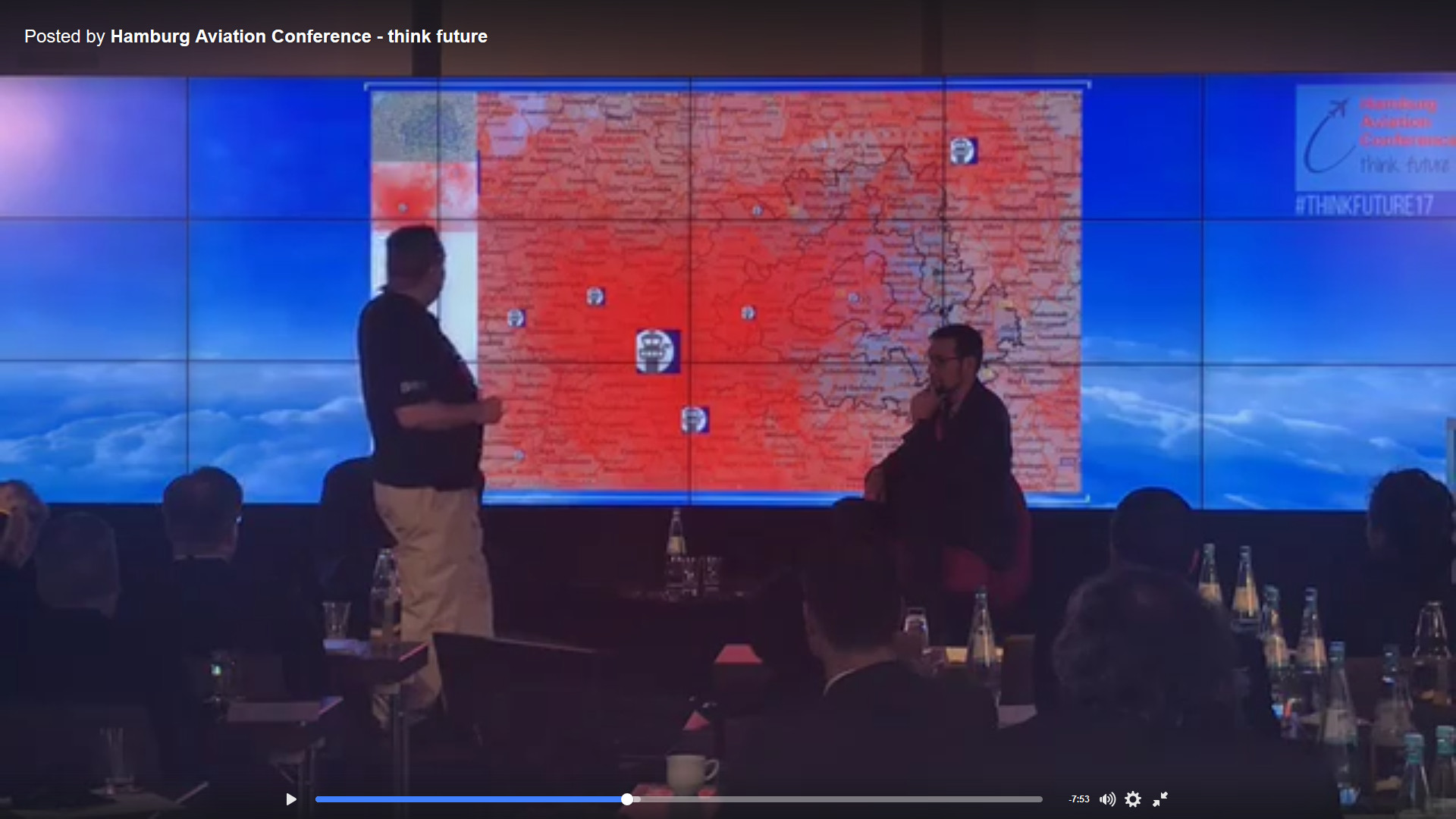
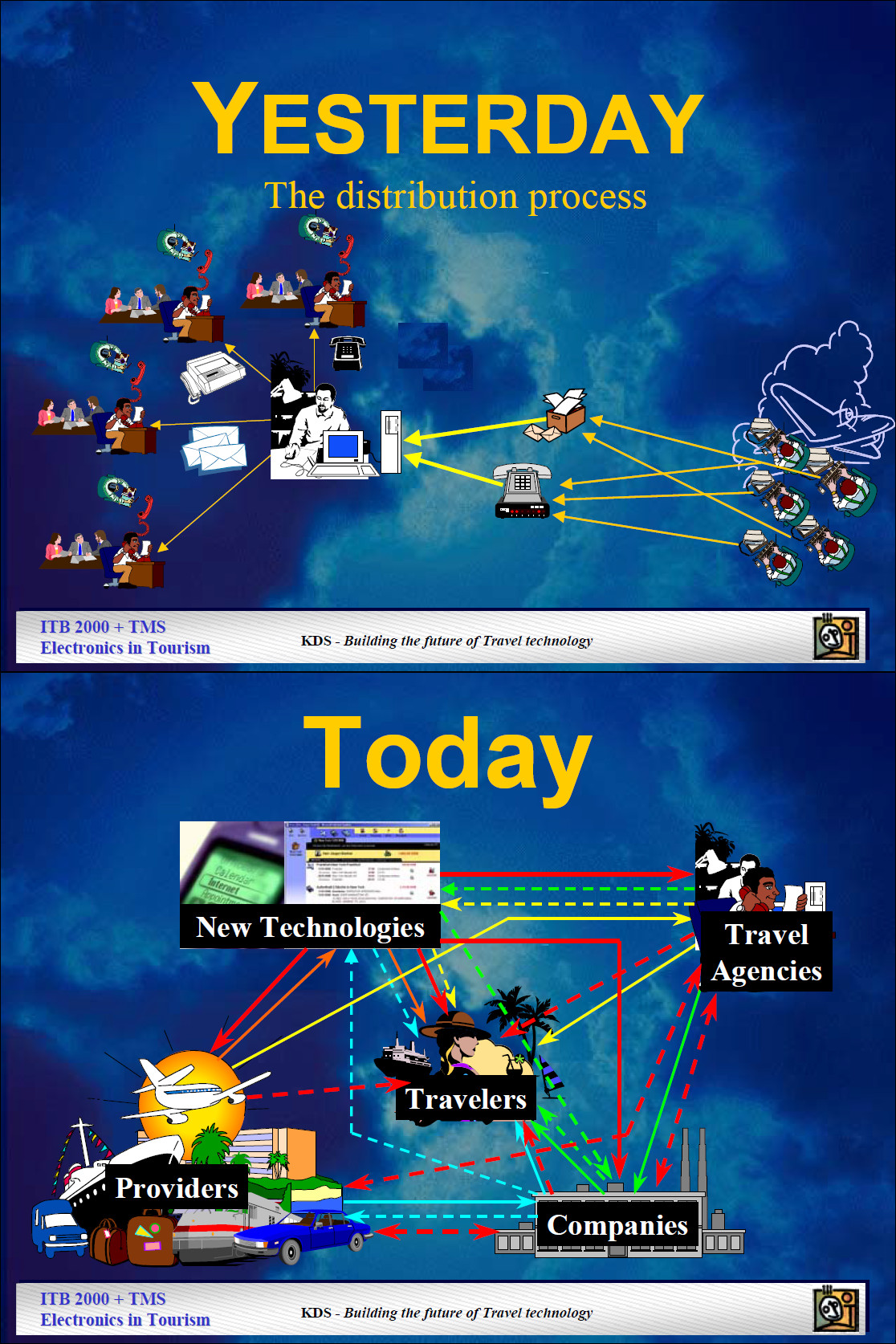
 On the floor, there were many discussions that there is a need in “change managers”, as there are all those fancy solutions and understanding of the need. That again reminded me of my question, why
On the floor, there were many discussions that there is a need in “change managers”, as there are all those fancy solutions and understanding of the need. That again reminded me of my question, why 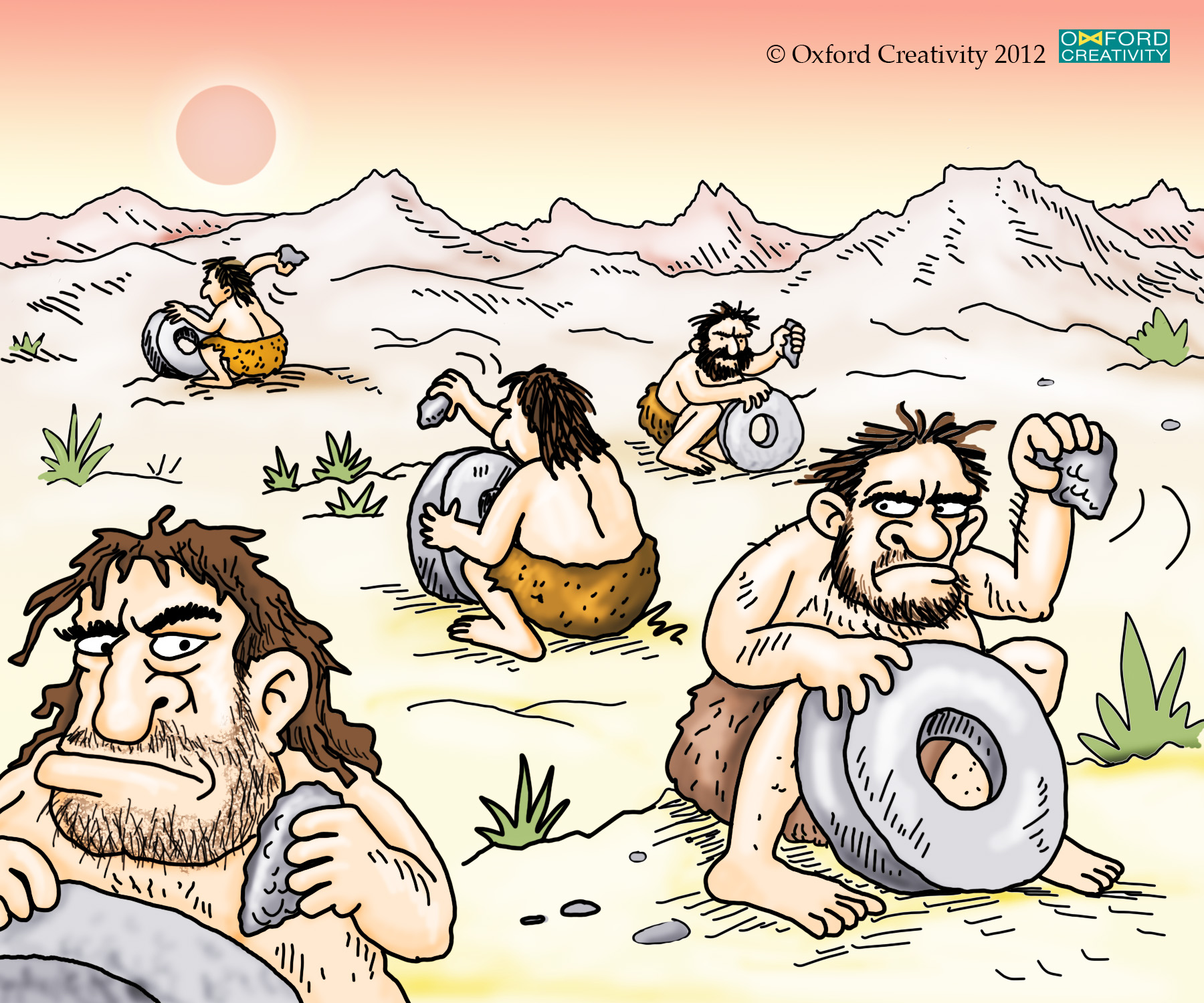
 Some of the really good ideas in the dead lock of silo thinking, where about one of the new hypes: The Passenger Journey.
Some of the really good ideas in the dead lock of silo thinking, where about one of the new hypes: The Passenger Journey.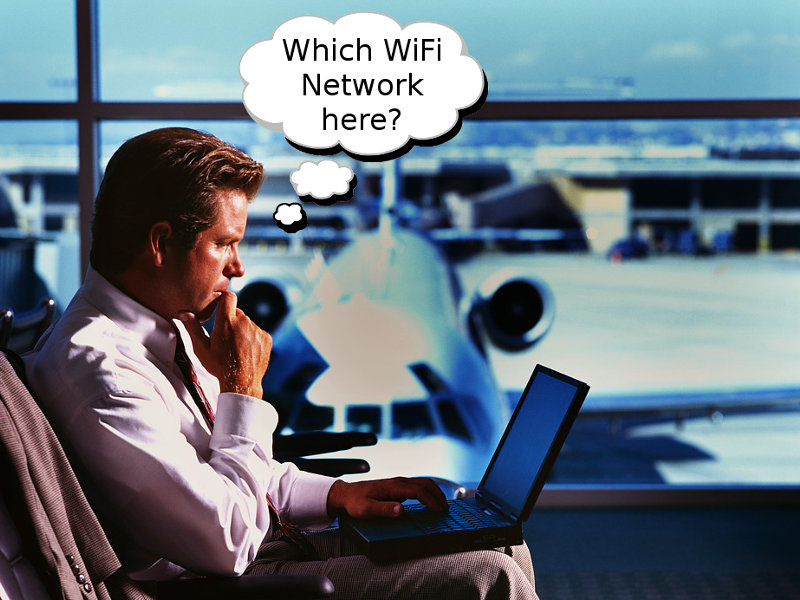
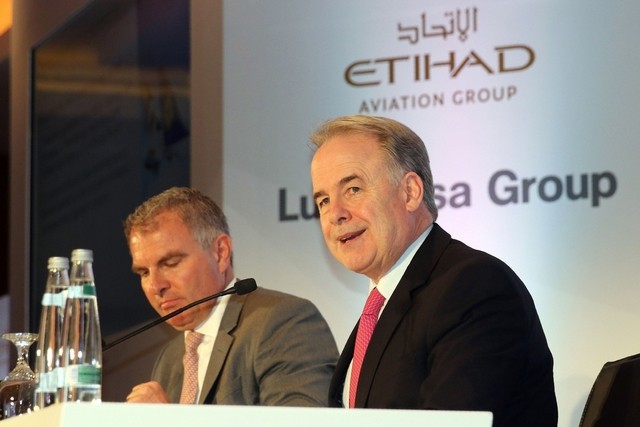 in his very interesting
in his very interesting 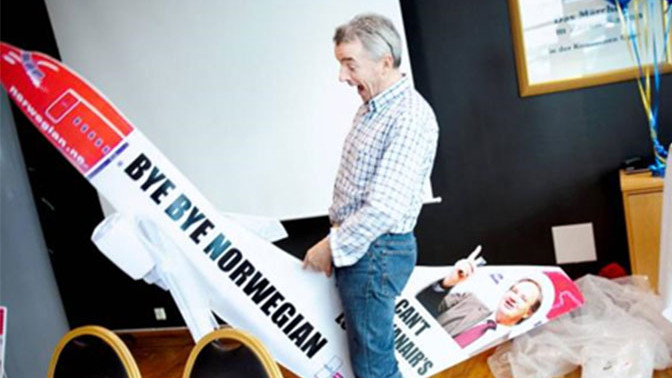 He also announced they will feed to Aer Lingus and Norwegian on an “interline light” model but with baggage thru-check. Another step from Low Cost to classic operations model. As I kept emphasizing in my Airlines Sales & e-Commmerce presentations. Low Cost will only need a business case to provide “classic” services. Also nice to remember that
He also announced they will feed to Aer Lingus and Norwegian on an “interline light” model but with baggage thru-check. Another step from Low Cost to classic operations model. As I kept emphasizing in my Airlines Sales & e-Commmerce presentations. Low Cost will only need a business case to provide “classic” services. Also nice to remember that  Konsta Hansson
Konsta Hansson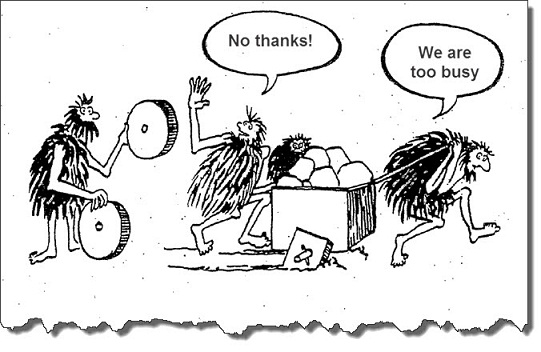 There was a lot of visionary ideas about where to go, but rather little about how to get there. The above concerns were quickly voiced but not identified as concerns. Steps taken are taken by individual stake holders (technology companies) and less on a development of common standards. So we have fantastic ideas, but we all keep develop our own individual standards = Data Silos. And worse: Silo Thinking!
There was a lot of visionary ideas about where to go, but rather little about how to get there. The above concerns were quickly voiced but not identified as concerns. Steps taken are taken by individual stake holders (technology companies) and less on a development of common standards. So we have fantastic ideas, but we all keep develop our own individual standards = Data Silos. And worse: Silo Thinking!
 I had a student I made my assistant back in Erfurt. When I left, her fellow colleagues degraded her back to “student” (cooking coffee, assisting their work).
I had a student I made my assistant back in Erfurt. When I left, her fellow colleagues degraded her back to “student” (cooking coffee, assisting their work).  Same for
Same for 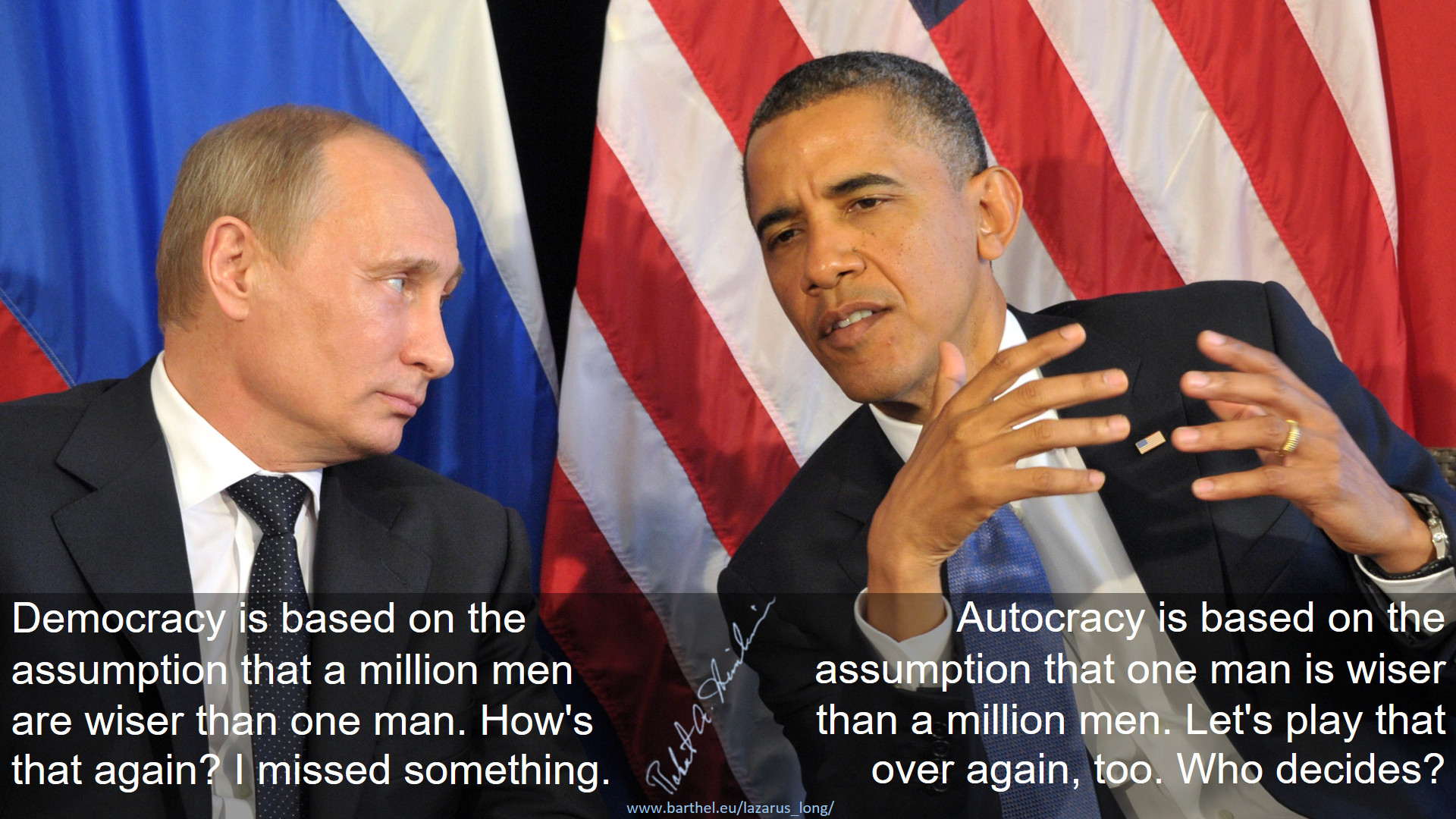

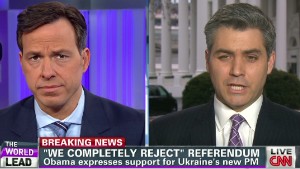
 It’s interesting to see the Western-dominated Wikipedia’s wording, approving the coup against a democratically elected president but at the same time condemning any actions by the Crimean, Eastern Ukrainians. Condemning the Russian support that they have been asked for by those regions. It’s not that Wikipedia does not mention it. Propaganda is more subtle. It’s in the wording and the amount of explanation you give or keep. It’s that exact example that makes Russians (people!) question “Western democracy”. Or the neutrality even of a trusted source like Wikipedia – it’s written mostly by Americans. With the best intentions. But in the political environment they work from. It’s hard to fight off that subtle, omnipresent propaganda…
It’s interesting to see the Western-dominated Wikipedia’s wording, approving the coup against a democratically elected president but at the same time condemning any actions by the Crimean, Eastern Ukrainians. Condemning the Russian support that they have been asked for by those regions. It’s not that Wikipedia does not mention it. Propaganda is more subtle. It’s in the wording and the amount of explanation you give or keep. It’s that exact example that makes Russians (people!) question “Western democracy”. Or the neutrality even of a trusted source like Wikipedia – it’s written mostly by Americans. With the best intentions. But in the political environment they work from. It’s hard to fight off that subtle, omnipresent propaganda…
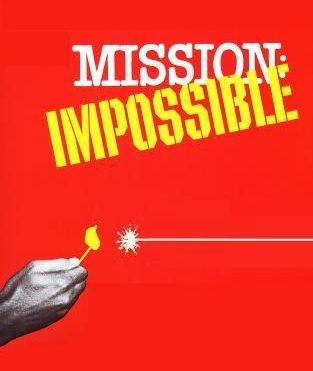 Two weeks ago, a
Two weeks ago, a 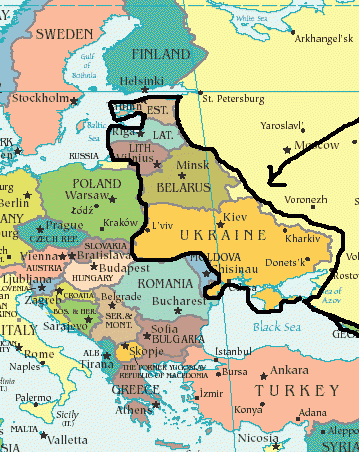 My personal interpretation: When the elected president tried to sign a strong bond with Russia (still independent), Europe tried to force Ukraine to side with Europe instead (dependency), forcing it into an unmanageable situation. When they messed up they stuck to their self-invented stories not to confess their mess-up. And the mess up will remain unresolved for European politicos now fight the deamons they let loose.
My personal interpretation: When the elected president tried to sign a strong bond with Russia (still independent), Europe tried to force Ukraine to side with Europe instead (dependency), forcing it into an unmanageable situation. When they messed up they stuck to their self-invented stories not to confess their mess-up. And the mess up will remain unresolved for European politicos now fight the deamons they let loose.
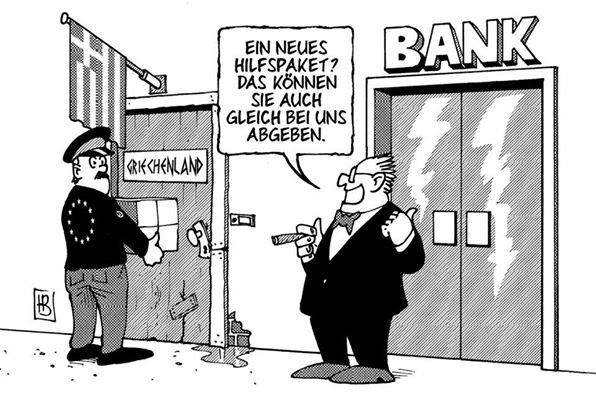
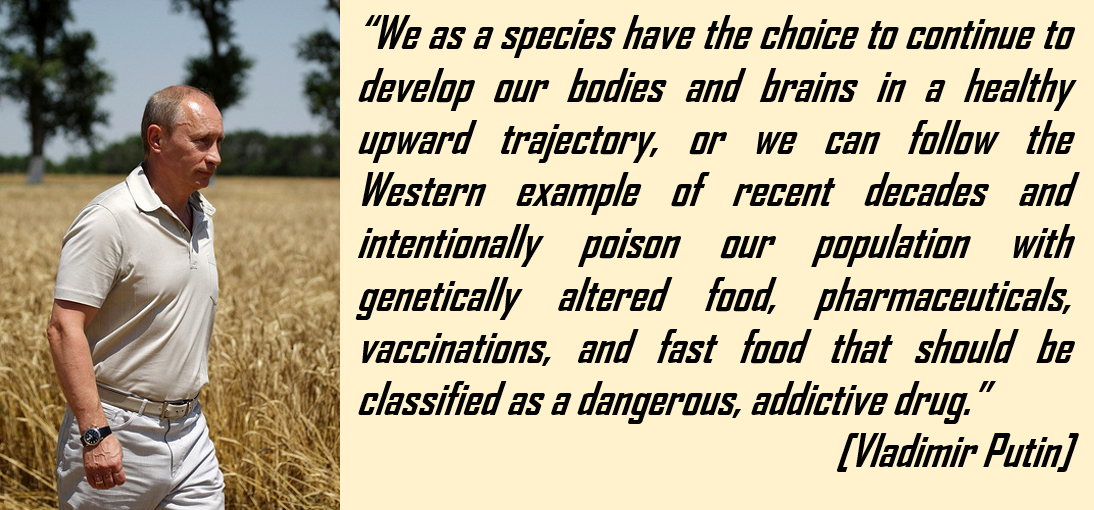

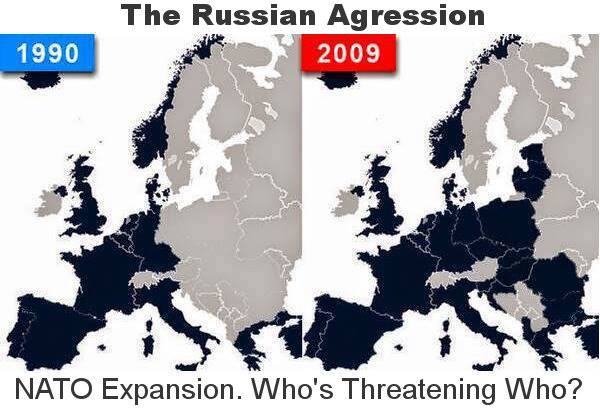
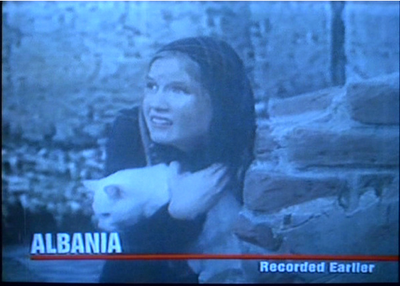
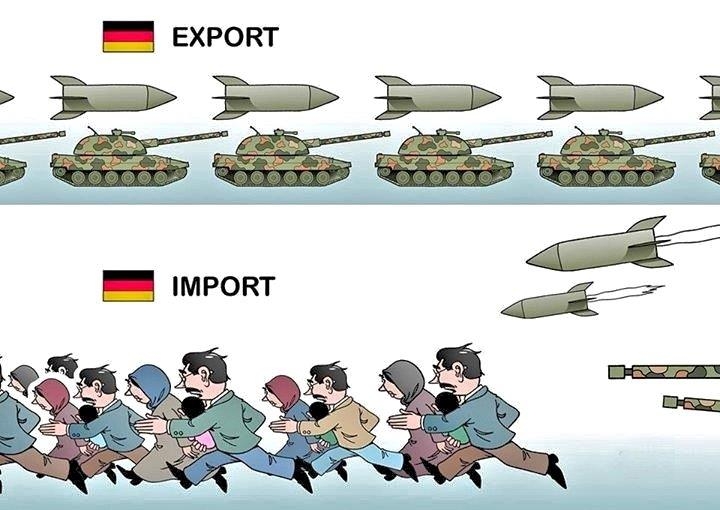 The Arabian Spring
The Arabian Spring Turkey
Turkey I keep telling people that you have to understand your business model, you got to understand your “Unique Selling Proposition” (USP). But then I fall in the same trap. Implying “initial” understanding…
I keep telling people that you have to understand your business model, you got to understand your “Unique Selling Proposition” (USP). But then I fall in the same trap. Implying “initial” understanding…